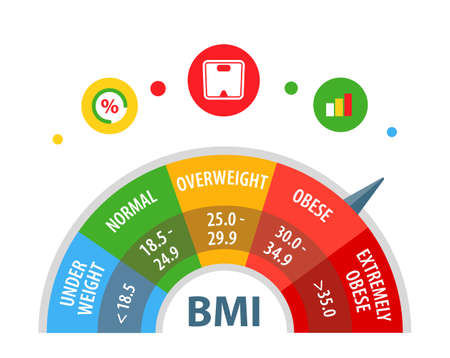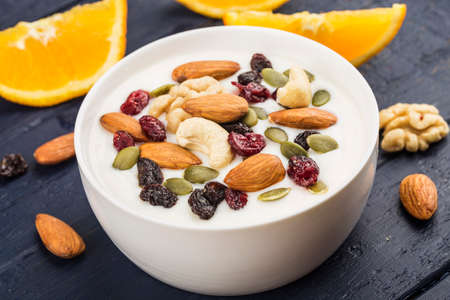Introduction: The Importance of Protein in Injury Recovery
For many Britons, life rarely slows down—even when recovering from an injury. Whether you are mending a twisted ankle after a weekend football match or rehabilitating post-surgery, the journey to full recovery hinges on more than just rest and physiotherapy. Nutrition, particularly protein intake, plays a pivotal role in supporting muscle repair and overall healing. In the UK, where busy lifestyles often leave little time for elaborate meal preparation, understanding the significance of protein is especially crucial. Protein provides the building blocks—amino acids—that our bodies need to repair damaged tissues, rebuild muscle mass lost during periods of reduced activity, and maintain a healthy immune response. With NHS guidelines consistently highlighting the importance of balanced nutrition during convalescence, it becomes clear that prioritising protein isn’t just beneficial—it’s essential. For those navigating recovery amidst work commutes, school runs, and daily obligations, finding convenient ways to boost protein intake can make all the difference in getting back on your feet sooner.
Understanding Grab-and-Go Nutrition in British Daily Life
Modern British life is fast-paced, with many people balancing demanding work schedules, family responsibilities, and social commitments. This leaves little time for traditional sit-down meals, particularly for those recovering from injury who need to ensure optimal nutrition. The concept of grab-and-go snacks has therefore become central to the daily routines of busy Britons. However, the growing awareness of health and wellness—further heightened by the necessity for effective recovery nutrition—has shifted consumer demand towards healthier, protein-rich options that can be consumed on the move.
The Role of Protein in Recovery
Protein plays a vital role in muscle repair and overall recovery following an injury. For individuals on the go, convenient access to high-protein foods supports healing without requiring extensive meal preparation. Yet, convenience often comes at the expense of nutritional quality, making it crucial for consumers to distinguish between genuinely healthy snacks and those laden with sugars or empty calories.
Typical British Routines: When Convenience Matters Most
To better understand where grab-and-go snacks fit into British daily life, consider these common scenarios:
| Situation | Time Constraint | Preferred Snack Qualities |
|---|---|---|
| Commuting to Work | Short window before leaving home or en route | Portable, minimal mess, high satiety |
| Lunch Breaks at Work | Limited break time (20-30 minutes) | No refrigeration required, balanced nutrition |
| After Physiotherapy Sessions | Need to refuel quickly post-exercise | Fast absorption, high protein content |
| School Runs & Errands | On-the-move with children or tasks | Easy to eat one-handed, appealing taste |
The Shift Towards Healthier Choices in Britain
The British market has seen a notable increase in the availability of healthy snack alternatives. Supermarkets and corner shops now stock a variety of protein bars, Greek yoghurts, boiled eggs, and even plant-based protein packs. Public health campaigns and workplace wellbeing initiatives further encourage consumers to choose snacks that are not only convenient but also supportive of recovery and long-term health goals.

3. Top Protein-Rich Snack Ideas from British Supermarkets
For busy Britons recovering from injury, the right snack needs to balance convenience, taste, and nutritional value—particularly protein content for muscle repair and sustained energy. Fortunately, UK supermarkets stock a wide variety of protein-packed grab-and-go options tailored to local preferences and major brand offerings.
High-Protein Dairy Snacks
Dairy-based snacks such as Quark pots, Greek yoghurt pouches (like FAGE or Müllerlight), and Skyr yoghurts are popular choices on British shelves. These are not only rich in protein but also easily portable, often available in handy single-serve pots ideal for snacking between physiotherapy sessions or on the commute.
Convenient Meat & Fish Options
Sliced cooked chicken breast packs, mini charcuterie bites, and smoked salmon slices found in chilled sections at Tesco, Sainsbury’s, or Waitrose provide a savoury boost of protein. For those seeking British brands, look out for Naked Chicken Bites or The Gym Kitchen’s ready-to-eat range, which are designed with health-conscious shoppers in mind.
Plant-Based Protein Solutions
The shift towards plant-based eating hasn’t left active recovery behind. Pulsin protein bars, Nakd protein balls, and supermarket own-brand vegan protein bars cater to both vegans and flexitarians. Additionally, roasted chickpeas, edamame pots, and flavoured tofu bites offer satisfying alternatives without compromising on protein content.
Egg-Based Snacks for On-the-Go
A classic British staple is the hard-boiled egg twin pack, available pre-cooked and peeled from Marks & Spencer or ASDA. These require no prep, fit easily in a bag or lunchbox, and deliver a high-quality protein punch perfect for recovery nutrition.
Local Flavours Meet Practical Nutrition
To suit local palates, many brands infuse traditional British flavours such as cheddar and onion, smoky bacon, or sour cream and chive into their high-protein snack ranges—making these options not just functional but genuinely enjoyable. By selecting from this diverse range of widely available supermarket snacks, injured Britons can efficiently support their recovery without sacrificing taste or convenience.
4. DIY Protein Snack Recipes with a British Twist
Homemade protein snacks don’t have to be complicated or expensive, especially when you focus on familiar ingredients found in most UK kitchens. For Britons recovering from injury, creating your own grab-and-go options ensures both nutritional value and cultural comfort. Below are some easy recipes that celebrate British staples, making them accessible and appealing for local tastes.
Classic Egg & Cress Protein Pots
Eggs are a quintessential part of the British diet and an excellent source of high-quality protein. Prepare hard-boiled eggs, slice them in half, and top with fresh cress and a sprinkle of sea salt. Pack into small containers for a quick snack that’s rich in protein and reminiscent of classic British sandwiches.
Cheese & Oatcake Stacks
Oatcakes, popular throughout the UK, pair beautifully with mature cheddar for a filling snack. Layer slices of reduced-fat cheese between traditional Scottish oatcakes. Add cherry tomatoes or sliced cucumber for extra flavour and nutrition.
Recipe Table: Simple British-Inspired Protein Snacks
| Snack Name | Main Ingredients | Protein per Serving (approx.) |
|---|---|---|
| Egg & Cress Pots | Eggs, Cress, Sea Salt | 12g |
| Cheese & Oatcake Stacks | Mature Cheddar, Oatcakes | 9g |
| Smoked Salmon Crumpet Bites | Wholemeal Crumpets, Smoked Salmon, Low-Fat Cream Cheese | 10g |
| Lentil Scotch Eggs (Vegetarian) | Lentils, Eggs, Wholemeal Breadcrumbs | 13g |
Smoked Salmon Crumpet Bites
Transform wholemeal crumpets into bite-sized treats by spreading them with low-fat cream cheese and topping with smoked salmon. This snack is not only high in protein but also delivers omega-3 fatty acids essential for recovery.
Lentil Scotch Eggs (Vegetarian Option)
A plant-based take on the beloved Scotch egg: wrap hard-boiled eggs in seasoned mashed lentils and coat lightly with wholemeal breadcrumbs before baking. These provide an impressive protein punch while catering to vegetarians.
Accessible Flavours for Every Busy Briton
The above recipes highlight how traditional British flavours can be adapted into nutritious snacks ideal for those on the go. By focusing on staple ingredients like eggs, cheese, oats, and lentils, these options remain budget-friendly and widely available across UK supermarkets—ensuring everyone can enjoy tasty and restorative protein-rich snacks during their recovery journey.
5. Tips for Making Smart Snack Choices During Recovery
Understanding UK Food Labels: What to Look For
When selecting protein-rich snacks while on the mend, it’s crucial to become label-savvy. In the UK, food packaging provides key nutritional information that can guide your choices. Pay close attention to the “per serving” and “per 100g” values for protein content—aim for snacks with at least 8-10g of protein per serving. Also, check the traffic light system on the front of packs, which highlights fat, sugar, and salt levels. Opt for green or amber labels for healthier options. Don’t overlook ingredients lists; prioritise whole food sources of protein like chicken, eggs, pulses, or dairy over highly processed alternatives.
Practising Portion Control: Quality Over Quantity
Recovery often comes with changes in activity levels, so minding portion sizes is essential. Even nutritious snacks can add up if eaten in excess. Use pre-portioned packs available in most British supermarkets or measure out servings at home using kitchen scales or familiar objects (for example, a palm-sized portion of nuts or a matchbox-sized piece of cheese). Avoid grazing straight from large bags or tubs to prevent unintentional overeating. Remember, a well-balanced snack should leave you satisfied but not overly full.
Balancing Flavour and Nutrition: Satisfying Both Cravings and Needs
Being on the mend doesn’t mean sacrificing taste for nutrition. Choose snacks that are both enjoyable and beneficial to your recovery. For instance, pair Greek yoghurt (high in protein) with a drizzle of honey and some berries for natural sweetness. If you crave something savoury, try slices of lean ham rolled around cucumber sticks or oatcakes topped with cottage cheese and chives. Experiment with herbs and spices—like paprika or cracked black pepper—to elevate flavour without adding unnecessary salt or fat.
Staying Mindful While Snacking
Eating mindfully helps you tune into your body’s hunger cues and prevents boredom eating—a common pitfall during recovery periods. Take time to sit down and enjoy your snack rather than eating on autopilot. This small habit can improve digestion and satisfaction while helping you stick to your nutritional goals.
Consulting Professionals for Personalised Advice
If you’re unsure about making the best choices for your individual situation, don’t hesitate to ask a registered dietitian or NHS healthcare professional for guidance tailored to your specific needs and recovery goals.
6. Sourcing and Supporting Local: Buying British for Better Recovery
When selecting protein-rich grab-and-go snacks during injury recovery, the choice to buy British goes far beyond convenience. Opting for locally-produced protein snacks—such as British-made Greek yoghurt pots, free-range boiled eggs, or oat-based flapjacks fortified with regional whey protein—offers a host of advantages for busy Britons.
Championing British Farmers and Suppliers
Supporting homegrown brands and local producers means backing British farmers and small-scale suppliers who are committed to high standards of animal welfare and sustainable agriculture. Choosing snacks sourced from UK dairy farms or local free-range egg producers not only ensures freshness and traceability but also contributes to the vibrancy of rural communities across the country.
The Health Benefits of Local Produce
Locally-produced snacks often travel shorter distances from farm to shelf, retaining more nutrients and flavour while reducing the carbon footprint associated with transportation. This freshness can be particularly valuable for those recovering from injury, when every nutrient counts towards rebuilding strength and supporting immune function. Moreover, many British brands pride themselves on using fewer additives and preservatives, offering a more wholesome option for health-conscious consumers.
Fostering Community Wellbeing
Choosing British-made protein snacks isn’t just about personal recovery; it’s about fostering wider community health. By supporting local businesses, consumers help sustain jobs and encourage further innovation in healthy snack options that cater specifically to British tastes and dietary needs. This creates a positive feedback loop where demand for nutritious, convenient food fuels improvements in quality and accessibility for all.
In summary, sourcing your grab-and-go protein snacks locally is a small yet significant step towards better personal recovery, environmental responsibility, and community wellbeing—making it an ideal choice for busy Britons on the mend.

